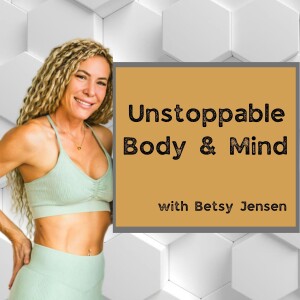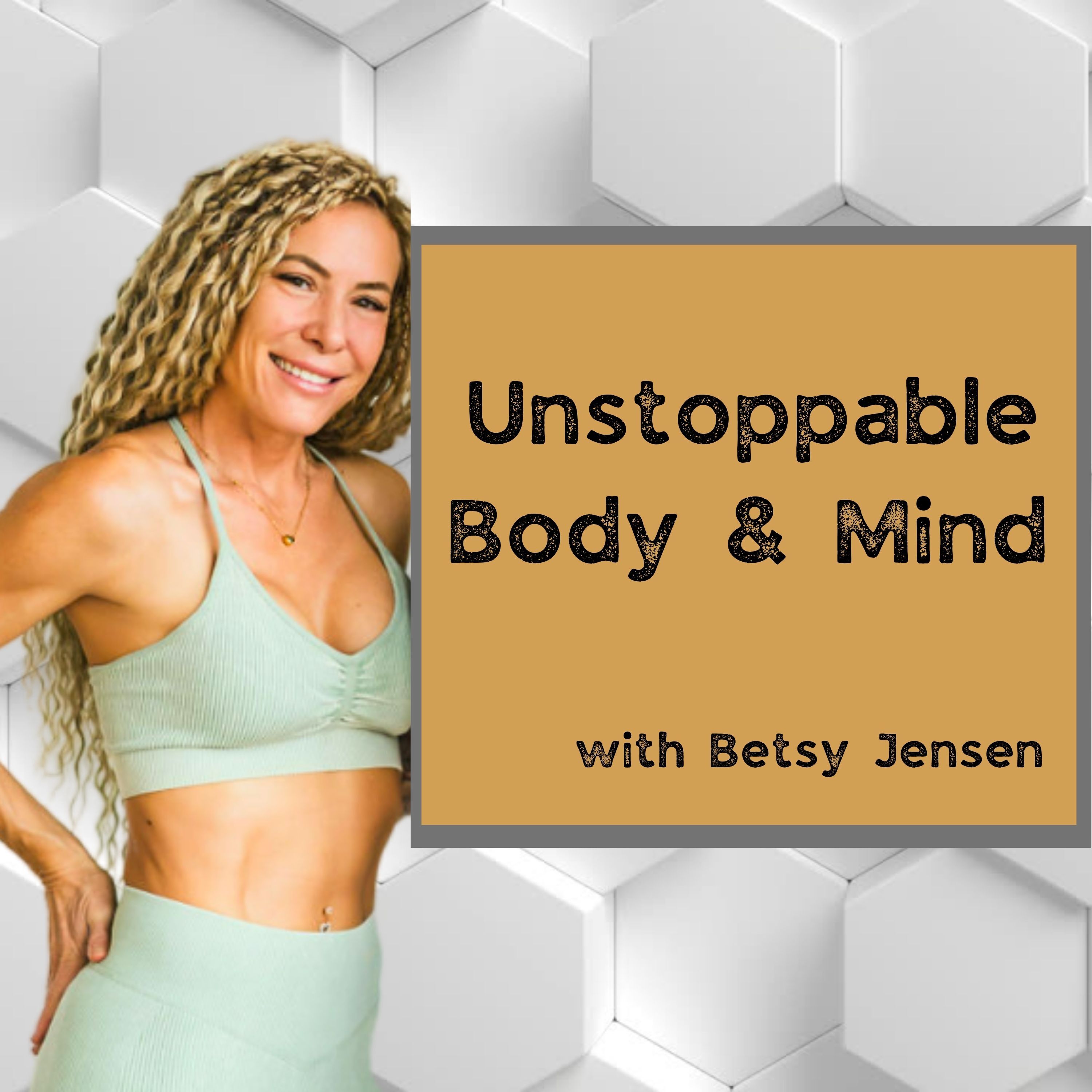Episodes

Monday Jul 19, 2021
Episode # 71- Becoming More Mindful
Monday Jul 19, 2021
Monday Jul 19, 2021
As I have been talking about on the last few episodes, mindfulness and chronic pain are related.
Practicing mindfulness has been shown to decrease stress, improve mental health, increase immunity and decrease insomnia.
Mindfulness is the basic human ability to be fully present, aware of where we are and what we’re doing, and not overly reactive or overwhelmed by what’s going on around us.
You stop living like everything is an emergency.
By becoming more mindful, you become more aware- of you inner and outer environment (in a non-reactive way).
You become more open- not shoving things like emotions down. And also not exaggerating the emotion.
And you become more accepting- not reacting without thought, or being able to calm and regulate yourself after stress. And most importantly- accepting yourself!!! Accepting your thoughts, your emotions, seeing your humanity, knowing you aren't broken. This is part of mindfulness that can especially help with chronic pain.
Listen for specific strategies to become more mindful in your life!
If you have not yet given my podcast a rating or review, PLEASE do that here:
https://podcasts.apple.com/us/podcast/the-unstoppable-body-and-minds-podcast/id1493360543
For more information, check out my website https://bodyandmindlifecoach.com
Or to schedule a free 60 min coaching session, click here, https://calendly.com/thebetsyjensen/free-consult
Transcript:
“This is Betsy Jensen, and you are listening to Unstoppable Body and Mind, episode 71, Becoming More Mindful. In this podcast, we learn to upgrade our brain and understand the power of our thoughts, to heal and to create the results we want in our life. Become the person in control of your healing and make peace with your life.
Become Unstoppable Body and Mind.
Hello, my loves. Today, we're going to talk about how to become more mindful. I've had a theme going here the past few episodes about how our thoughts influence our pain.”
Couple episodes ago, we talked about the pain, fear, pain cycle, and about how fear and things like catastrophizing increase the brain's production of pain. So not just pain that's coming from the body that you're feeling and interpreting in your brain, but signals coming from the brain that are felt in the body and felt as real pain. Becoming more mindful has shown to have an inverse effect on pain.
So the more mindful someone is, predictively shows that they will have less pain. And if they are less mindful, they are more likely to catastrophize their pain, have their acute pain turn chronic, even have a slower recovery after surgery, and even more likely to have new acute pain show up. So overall, people who are more mindful have less pain.
Here's a definition of mindfulness that I really liked. Mindfulness is the basic human ability to be fully present, aware of where we are and what we're doing, and not overly reactive or overwhelmed by what's going on around us. Basically, we stop living like everything's an emergency.
A lot of research has been done around mindfulness and mindfulness meditation and the effects on the brain. I won't go into all of the details, but one area that is of primary interest when we're talking about chronic pain is the amygdala. The amygdala is the center where we process the fight or flight emotions, and this area is also where pain can be generated, where there are descending pain control systems.
More activity in the amygdala means that you're more likely to be in a state of fight or flight or even have chronic pain. But what they've found is people who are more mindful or who go through mindfulness training are able to lower the activity in the amygdala and stay more regulated. There's also more activity in the prefrontal cortex, so the area of our brain that makes logical, rational decisions.
Mindfulness also shows more activity in the prefrontal cortex, which is the area of the brain involved in logical thinking and decision-making. Mindfulness is shown to have positive effects on mental health and the immune system, can help with chronic pain, overcoming insomnia, and with burnout. There will always be stressful situations in the world.
Mindfulness will help you change how you react to those stressful things and help you feel calmer and more in control. So I'm gonna tell you a few general principles of mindfulness, and then some specific ways to practice becoming more mindful. The first step in becoming more mindful is to become more aware.
To become aware of your thoughts, of your feelings, and to become the observer of your mind. Become more aware of your inner and outer environment. And watch your thoughts and feelings without getting attached to them.
The next step in becoming more mindful is to become more open. Try not to push away thoughts or emotions that you're noticing that are uncomfortable. Replace your fear with curiosity.
Become so curious or fascinated about what's going on and how you're feeling. And especially if you have the tendency to want to stifle some of those reactions. Also be on the lookout if you generate excess emotion.
What are you trying to achieve there? Become more open in questioning and observing all of it. The last step is to become more accepting.
More accepting of yourself and others. I think this especially applies to those of us with chronic pain or conditions that have the personality traits that are typical. So people-pleasing, high-achieving, perfectionism, and trying to be good all of the time.
Those types of people, us, me included, we tend to put a lot of pressure on ourselves and have a harsh inner critic. So this is the area where you're more accepting of the thoughts of yourself that you don't like. The emotions of yourself that you don't like.
Anything that comes up that you are judging yourself about, be very mindful of that inner critic. It might just sound like background noise if you've been hearing it for a long, long time. It might even be sounding like what your parents or caregivers said to you, and then you've internalized that.
So I'm talking about the, not the inner voice that helps guide you and lead you, I'm talking about the inner critic that might say things like, you're so stupid, I can't believe you did this again, this is just like you, you're never gonna succeed, nobody loves you. That's the kind of stuff that you want to notice and notice that it's there without judging yourself more. So be accepting that it's there, but also not believing it.
Not letting that inner critic actually be what you're listening to and believing. Okay, so now I'm gonna go through a few specific tips, things you can try today or this week to become more mindful. The first one is to meditate.
I started meditating for just three minutes a day when I started. So if you have not been a meditator before, I would suggest just starting with a few minutes per day. Give yourself some time to quiet your mind.
Don't be too concerned if you're not able to keep a quiet and peaceful mind for very long. That is normal. As the thoughts come into your head, just try to let them go, notice them, not react to them.
Maybe return to the breathing. That can always help. So with meditation, it's just a process of connecting with yourself, quieting your mind.
And so you can be so gentle and compassionate with yourself. This is not an area where you'd need to perform or meditate better than anyone else. You can become more mindful by focusing on one thing at a time.
This one is hard for me to admit because I love the idea of being a fabulous multitasker. But the research actually does show that multitasking is less effective. So I have been trying, when I am working on something, and I get an idea for something else, just making a note of it and not actually going to my phone to check it or something like that.
So I'm trying this too. There's part of me that really loves the idea of multitasking. But it is an idea of another way to work on becoming more mindful.
The next tip for promoting mindfulness is to slow down whatever you are doing. If you're eating, if you're drinking your coffee, if you are walking someplace, whatever you're doing, taking time to not rush through it, to be with yourself and your thoughts or your activities. This can help you focus and feel less overwhelmed.
We can become more mindful by limiting what we're consuming. So the time we spend on our computers or phones or listening to the news or reading the news, all of this can tend to overwhelm us with a lot of information. Moving your body increases mindfulness.
So whether it's going for a short walk or doing yoga or just doing some gentle stretches, anything where you're becoming aware of your body's sensations with movement helps develop mindfulness. Sometimes I find people can be very harsh on themselves with exercise, and they can create a lot of anxiety and urgency around exercise. So I would just suggest moving your body in ways that feel good to it.
It might be dancing in your living room or playing fetch with your dog. The last tip for increasing mindfulness that I'll share today is to spend time in nature. Getting outside in nature can help you focus on the present moment.
And you can try, if you're used to listening to music or podcasts, try going without and just focusing on what you're seeing, what you're feeling, and what you're hearing, or any of your other sensations. Now, one thing to be aware of is, as you're noticing more things, you may start to notice more painful things. And that's okay.
This is still progress. You are noticing more, and that can include positive and negative things. When you notice things are painful, try to allow them, be curious about them, go into them with less resistance.
Be so compassionate and kind to yourself in this process. You also may notice that it's difficult feeling good emotions at times. So you may need to work on increasing your capacity for joy.
So think of what you can do this week to start becoming more mindful of yourself and your thoughts and your emotions and your body. Being so neutral or accepting and loving and compassionate of the things you find. All right, you guys, have a great week.
Bye. Thank you so much for listening. I hope you learned a little bit about your brain today that helps you in your life like it helped me.
Please be sure and subscribe and leave a review. And of course, be sure and share this podcast with someone you know that wants an unstoppable body and mind.


No comments yet. Be the first to say something!